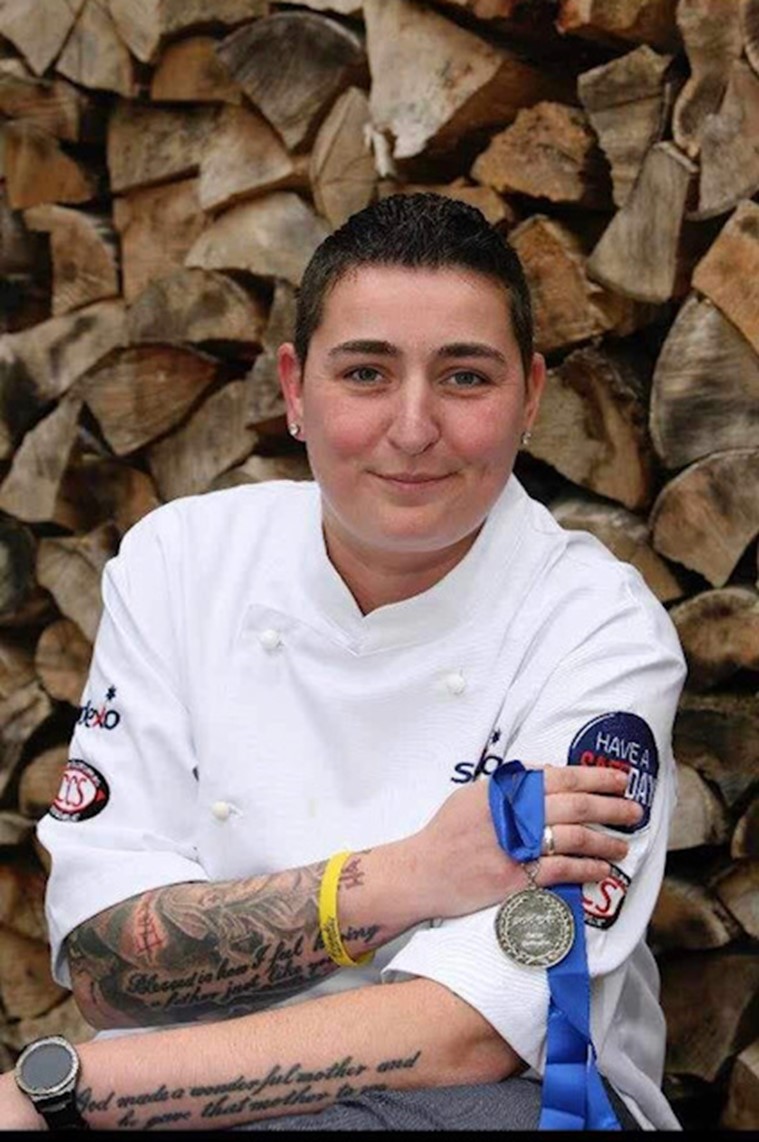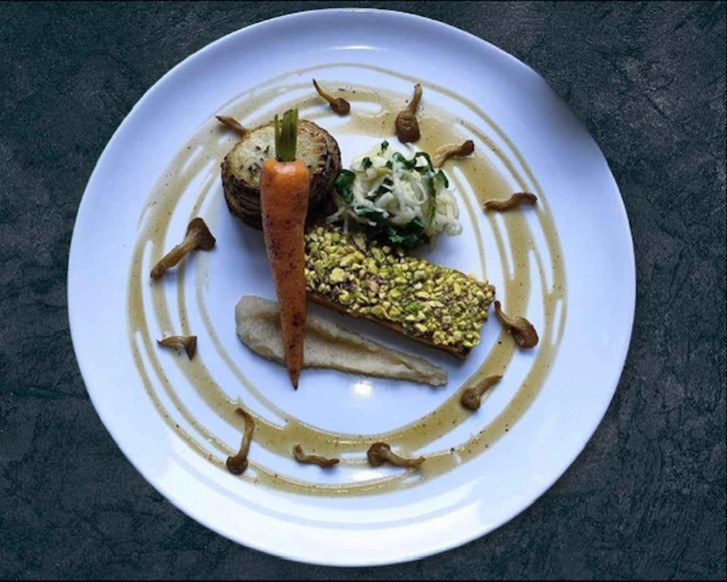Sharon McConnell is a chef based at one of Sodexo’s Government business client sites in Belfast. She’s usually found creating hearty, low-waste meals for up to 300 people, but this year she was also joint winner of Sodexo’s 2023 Global Sustainable Chef Challenge. Sharon talks about her work to cut food waste and explains why serving hundreds of customers is good preparation for the live cook-off competition.
 Providing the right fuel for the best response
Providing the right fuel for the best response
Cooking for Sodexo has given me a real insight into the demands of our clients and their staff. Here in Belfast, we serve all kinds of customers, some with very physical and demanding jobs which require specialist diets. They have to respond to new challenges daily, and that creates a knock-on challenge for me in terms of food waste, because it can be hard to predict the numbers. There’s five of us in the kitchen, and at any time we could have 100 people more or 100 people less than we expected to feed.
Thinking about waste at every stage
Even back at school I felt most at home in the kitchen, so a career in catering was always on the cards. I joined Sodexo as a food service assistant 15 years ago and worked my way up. I hate wasting anything, particularly food, so I’ve always tried to keep it down.
Volunteering with FareShare, which redistributes food to communities that need it, keeps me vigilant. But then you learn about the connection between food waste and climate change, and it fires you up even more.
We’ve been using WasteWatch here for about three years. By weighing what we waste, and looking at when and where it happened, we can pinpoint the problem and do things differently. If we have to peel vegetables, for example, we use the waste to make a fresh soup and it always goes down a storm. We also source locally to avoid spoiled produce and buy wonky veg that might not sell in a supermarket but works perfectly for us.
Involving guests in sustainable practices
Our client is fully supportive of our ambition to reduce our carbon footprint, and food waste is included as one of the contract’s Key Performance Indicators.
The good thing about low-waste cooking is that it tends to be healthier too, for example using vegetable skins that are full of nutrients and reducing the proportion of meat in a meal. I can see our guests here starting to make healthier choices, which is a growing trend everywhere, so I know there’s loads more we can do together.
We’ve already got customers helping on the food waste front by reusing our coffee grounds. We bag up the waste from our barista bar at the end of the day and they come and collect it for their gardens. It’s a great fertiliser and it keeps slugs away too.
We also use a system called DRIVE to help plan meals and manage stock in a way that minimises waste. But there’s no substitute for getting to know the customers you’re serving. We know when the school holidays are, for example, and keep a close eye on changing preferences. It’s much easier to think on your feet when you know what your customers love, which is why it made sense for me to make a quick potato bread from some leftovers when the popular farls didn’t arrive.
Becoming joint winner of Sodexo’s 2023 Global Sustainable Chef Challenge
I was thinking about dietary needs, about food waste and about healthy living in general when I came up with my recipes for our 2023 Global Sustainable Chef Challenge. This competition looks for low-carbon, sustainable dishes that minimise food waste. It didn’t seem right to use all of a vegetable, from root to stem, and then create a meal that not everyone could enjoy. So I’m cooking a pistachio-crusted celeriac steak, followed by a vegan chocolate mousse with a honeycomb and coconut ice cream. It’s gluten-free, vegan-friendly, and I’ve been told it’s delicious too.
I came up with my recipes for our 2023 Global Sustainable Chef Challenge. This competition looks for low-carbon, sustainable dishes that minimise food waste. It didn’t seem right to use all of a vegetable, from root to stem, and then create a meal that not everyone could enjoy. So I’m cooking a pistachio-crusted celeriac steak, followed by a vegan chocolate mousse with a honeycomb and coconut ice cream. It’s gluten-free, vegan-friendly, and I’ve been told it’s delicious too.
I was a little nervous about competing with seven other chefs in the live cook-off in Germany, but I’m used to preparing food under pressure. Because of the varied footfall, overproduction is a big risk for our clients so rather than preparing huge amounts of hot meals, I keep simple, quick-cook recipes up my sleeve for those unpredictably busy days. The customers I serve have to respond under pressure every single day they’re at work, so I took inspiration from them when I was on that stage.
